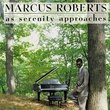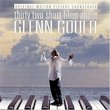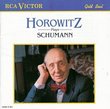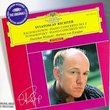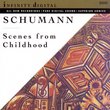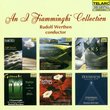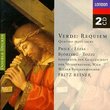| All Artists: J.S. Bach, Egmond, Baroque Orchestra, Bruggen Title: Cantatas Members Wishing: 0 Total Copies: 0 Label: Sony Release Date: 9/8/1998 Genre: Classical Styles: Opera & Classical Vocal, Historical Periods, Baroque (c.1600-1750), Symphonies Number of Discs: 1 SwapaCD Credits: 1 UPC: 074646037324 |
Search - J.S. Bach, Egmond, Baroque Orchestra :: Cantatas
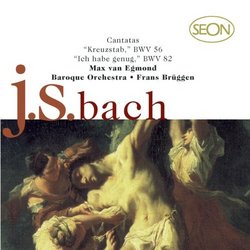 | J.S. Bach, Egmond, Baroque Orchestra Cantatas Genre: Classical
|
Larger Image |
CD DetailsSimilarly Requested CDs
|
CD ReviewsThe greatest Bach singer of our time Peter G. Watchorn | Cambridge, MA USA | 11/22/2002 (5 out of 5 stars) "Max van Egmond's recordings of the two great Bach cantatas for solo bass, Ich habe genug (I am satisfied), BWV 82, and Ich will den Kreutstab gerne tragen, BWV 56 (I will gladly carry the cross) resulted from politics at Telefunken in the 1970's associated with the departure of producer Wolf Erichson from the Hamburg-based record label. In 1958, Erichson had founded the influential Telefunken "Das alte Werk" series, and, in fact, "discovered" Max van Egmond (whose first recording was undertaken in 1964), the singer being subsequently signed for numerous recordings of Bach and Monteverdi with Gustav Leonhardt and Nikolaus Harnoncourt. When Erichson left Telefunken, the management assumed that artists like van Egmond, so closely identified with the producer, would also make the switch across to Erichson's own fledgling "Seon" enterprise. One casualty of this was the Telefunken "Das Kantatenwerk" recording of BWV 56, "Ich will den Kreutstab gerne tragen". Gustav Leonhardt was fully expecting van Egmond to do it, and was unpleasantly surprised at his exclusion from the project. It took some persuasion on the part of Telefunken's management to convince him to release the final recording which resulted. Leonhardt's personal intervention with the powers at Telefunken secured van Egmond's services for the rest of the complete cantata project (at least those undertaken with Leonhardt), while Harnoncourt had (most unwisely in the opinion of many listeners, including the present writer) decided from Cantata 30 to engage singers with heavier, more operatic voices than van Egmond's effortlessly agile and beautiful baritone. Consequently, the remaining big baritone cantata, Ich habe genug, (which Harnoncourt recorded) was, like BWV 56, undertaken without van Egmond's participation. (Harnoncourt's decision also excluded van Egmond, who recorded both passions and the b-minor mass, from the 1973 Christmas Oratorio, a blow to those of us who had waited to hear van Egmond in a work which he had performed innumerable times throughout Europe. Van Egmond did not record the Christmas Oratorio until 1998, in the United States).The result of these convoluted machinations was that Max van Egmond, a singer uniquely suited to perform and record these works did not get the opportunity until 1977, when he himself put together a baroque orchestra, under the direction of his friend in Amsterdam, Frans Brueggen (before the advent of the "Orchestra of the Eighteenth Century"), and recorded them for Erichson's Seon label. The results are simply without any peer. Van Egmond possesses a beautiful voice, perfect coloratura technique (although it is common with tenors, no other baritone has the same lightness and agility, except, perhaps for the young Stephan Schreckenberger of Cantus Coelln, who sounds uncannily like van Egmond), a unique feeling for the text and unmatched knowledge of performance style, garnered directly from his experience and interaction with Leonhardt and Harnoncourt (who has retained enormous respect for van Egmond's work, despite his own decision to choose other bass soloists for his recordings of Bach). The instrumental solos are as distinguished as one would expect. The work of oboist Paul Dombrecht is beyond praise, and the whole ensemble, led by Lucy van Dael is as expert as one would expect from this distinguished company. It's basically the recording which would (and should) have been made for Telefunken.For anyone who wants to experience the greatest Bach singing imaginable, in the company of a distinguished group of Dutch specialists in Bach's music, the few dollars asked for this recording makes it one of the great bargains of our time. I urge you to acquire this before it disappears. And buy another for a friend. Performances do not get any better than this." A virtuoso performance in PPP Larry VanDeSande | Mason, Michigan United States | 02/21/2007 (4 out of 5 stars) "I have a little to add to Peter Watchorn's lengthy, enthralling and accurate review of this now no longer available treasure from Seon (my version boasts the RCA Victor blue label with SEON remastering in red; I previously also owned the edition here.)
Max von Egmond, a now retired Dutch teacher and singer, is a bass-baritone whose timbre is more baritenor. A Baroque period performance specialist, Egmond recorded a wider range of music including Schubert's Winterreise. His singing is lucid, his enunciation crystal clear, and his temperament perfect for this music. He neither overdid it romantically nor underplayed the religious devotion inherent in the score. The two works in question, Bach's cantatas BWV 56 & 82, are the two greatest cantatas anyone ever wrote for a baritone. Fischer Dieskau recorded each at least three times, once in his youth, again in his peak vocal years, and later in his maturity when his voice was not as strong and he often resorted to hectoring for affect. Every other great Bach baritone recorded these two cantatas; Mack Harrell, John Shirley-Quirk and Matthias Goerne draw special praise for recordings in the past 30 years. Egmond, assisted by period music specialist Franz Bruggen, gives a marvelous performance of the two cantatas. There is nothing musically that diminishes his distinguished work. I graded this down a star for nonmusical reasons -- the recording shows its age (1980) by badly spotlighting Egmond against the orchestra, seemingly making the orchestra sound as if it is playing in another room. The engineering gives Egmond a boomy quality that does not exist in his smooth as silk voice. [...]" |

 Track Listings (10) - Disc #1
Track Listings (10) - Disc #1
